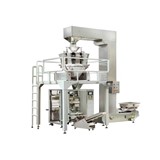Australian researchers for the Pacific Agricultural Research for Development (*PARDI) initiative, coordinated by The University of Queensland (UQ), are leading the team conducting the research which is being carried out in partnership with the Fijian Government and local industry.
Fiji has moved to boost local vegetable production and ultimately improve food security in the region following escalating food imports and a decline in local farming.
The new vegetable research initiative was kick-started in mid-2012 during a two-day hands-on workshop, hosted by the Fiji Ministry of Primary Industries (MPI) Sigatoka Research Station.
Industry participants, from growers through to hoteliers and policy makers, were given the opportunity to gain insight into each others' activities and review how they operate as members of the "vegetable production chain".
The project aito establish participatory guarantee syste(PGS) across Fiji to enable industry to work cooperatively to produce quality, reliable supplies of vegetables.
PGS operates on the principle that knowledge and coordinated effort is power. PGS is focused on organic production to overcome third party certification constraints
PARDI PGS vegetable project member, Suzanne Neave (from the AVRDC - World Vegetable Centre), said one of the key activities of the workshop was to "walk the chain".
"Participants at the introductory workshop had the opportunity to experience parts of the chain that they would not normally be exposed," she said.
"Attendance at our initial workshop was strong. We had growers from Sigatoka Valley, Coral Coast and Koronivia, staff from local resorts, middle men, MPI extension and research staff, University of the South Pacific staff, and university research staff from Australia.
"Exchange of information between buyers and sellers is one of the fundamental components of PGS.
"Overwhelmingly, workshop attendees were amazed by how little they knew about each other's operations and this was reinforced by some of their comments."
As part of the PARDI PGS vegetable project, one of the first activities will be to look into post-harvest losses.
Recent studies conducted by PARDI showed that tomato losses post-harvest are as high as 58 percent, which is a similar figure for eggplant and ball cabbage.
According to PARDI project leader, Jennifer Carter, PGS has the capacity to reduce losses, improve grower returns and increase the quality of the final produce.
"If through our combined efforts we can change how produce is handled from the farm to the plate, everybody will be a winner," she said.
PARDI is coordinated by The University of Queensland and funded by the Australian Centre for International Agricultural Research (ACIAR).
- Suppliers
- New to HospitalityHub? Book a Demo
- Advertise with us
- Login
- Email Marketing
- Buyers
- Get Quotes
- Articles & Ideas
- Login
- Subscribe to newsletter
- My Details
- Get Quotes
- Bakery & Dough Processing Equipment
- Bar Equipment & Barware
- Bathroom Fixtures & Accessories
- Chocolate Making Machinery
- Cleaning, Laundry & Housekeeping
- Commercial Coffee Equipment
- Commercial Cooktops
- Commercial Fridges & Freezers
- Commercial Fryers
- Commercial Kitchen Equipment
- Commercial Ovens
- Dish, Utensil & Glass Washing
- Entertainment & Outdoor
- Food Packaging & Ingredients
- Food Preparation Equipment
- Furniture & Fixtures
- Industrial Fans & Ventilation
- Material Handling Equipment
- Pizza & Pasta Making Equipment
- Point of Sale, AV & Technology
- Get Quotes
- Bakery & Dough Processing Equipment
- Bar Equipment & Barware
- Bathroom Fixtures & Accessories
- Chocolate Making Machinery
- Cleaning, Laundry & Housekeeping
- Commercial Coffee Equipment
- Commercial Cooktops
- Commercial Fridges & Freezers
- Commercial Fryers
- Commercial Kitchen Equipment
- Commercial Ovens
- Dish, Utensil & Glass Washing
- Entertainment & Outdoor
- Food Packaging & Ingredients
- Food Preparation Equipment
- Furniture & Fixtures
- Industrial Fans & Ventilation
- Material Handling Equipment
- Pizza & Pasta Making Equipment
- Point of Sale, AV & Technology
Trusted by 220,000 Australian hospitality buyers
Buyers
- Discover products & solutions
- Login
- Subscribe To Newsletter
- Browse All Products
- Read Articles
Suppliers
Advertise
- Promote your products & solutions
- New to HospitalityHub? Book a Demo
- Login / Forgot Password
- Advertise Your Products
- Success Stories
- Email Marketing
Trusted by 220,000 Australian hospitality buyers













-160x160-state_article-rel-cat.jpg)